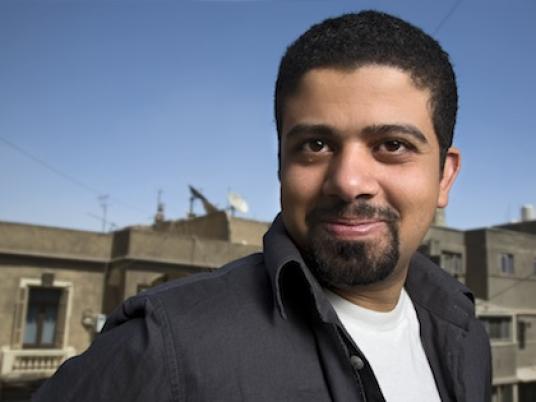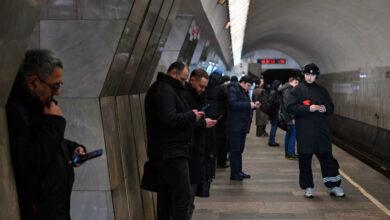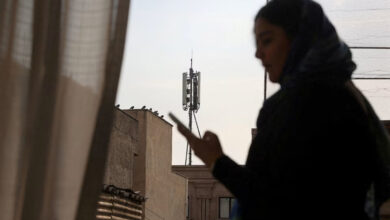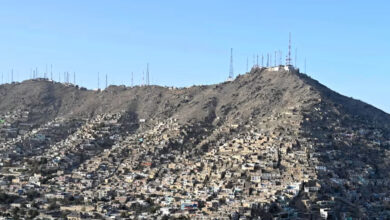
In what appears to be an unprecedented move, the Ministry of Religious Endowments has refused to issue a permit that would allow a film crew to shoot a scene inside Sayeda Nefeesa mosque, on the grounds that doing so would violate Sharia.
In a press statement released on Wednesday, director Ahmad Abdalla recounts being informed by the ministry’s office director that permits for filming inside mosques would no longer be issued for any production, and that the concept in itself was “generally unacceptable” since “mosques are not film sets.”
The refusal comes as the latest in a series of incidents causing concern over the growing influence of religion on government policy, following a landslide victory by Islamists in elections for both houses of Parliament.
This recent episode is particularly worrying since, as the award-winning director explains to Egypt Independent, “The Ministry of Religious Endowments has no right to decide something like this; it’s not within its authority.”
Traditionally, the Ministry of Religious Endowments is in charge of institutions or buildings that exist to benefit the community. This includes mosques. However, filming permits for mosques have, until now at least, always been issued by other authorities, mainly the Interior Ministry and, in some cases, Al-Azhar — the Islamic world’s ultimate religious authority — before passing through the Ministry of Religious Endowments for a final signature, which, according to Abdalla is “an act of meaningless formality rather than an official gesture. The Ministry of Religious Endowments is not involved in any major capacity — their role is to make sure the paperwork is in order, and that’s it.”
In post-Mubarak Egypt, it seems the lines between certain roles have become increasingly blurred.
“We expect to come up against problems of this sort every now and then, especially when dealing with strictly bureaucratic institutions,” says Abdalla. “It’s not surprising that, given the current lack of any substantial oversight, these institutions will try to gain new ground or curry favor in the eyes of these [newly-elected] Islamist groups.”
“But in this particular context, it’s a little ridiculous,” he sighs. “Our film is in no way offensive, nor does it aim to make any sort of anti-religious statement.”
The issue has since been adopted by the Egyptian Creativity Front — a recently formed task force of artists, producers and intellectuals aiming to protect creative freedoms and personal rights — which has released a press statement condemning the ministry's actions. Similarly, the Cinema Committee of the Culture Ministry has also posted a handwritten statement of condemnation. The creativity front is also currently in talks with ministry officials, Abdalla claims. The front could not be reached for comment or confirmation.
Abdalla himself is a critically acclaimed director, and one of the small group of filmmakers held largely responsible for the rise of Egyptian independent cinema. His lo-fi, semi-improvised approach to filmmaking can be seen in festival hits such as "Heliopolis" and "Microphone." He was also involved in "18 Days," a collection of short, revolution-themed films that premiered at last year’s Cannes Film Festival.
The film in question, "A Sheet and a Blanket," covers three days in the life of an escaped convict. The problematic scene sees the lead character, homeless and destitute, seeking shelter in a mosque.
According to his written statement, Abdalla pointed out to ministry officials that, aside from the scene’s innocuous nature, its actual filming would take place over one night, between evening and dawn prayers, and thus in no way disrupt the sanctity of the mosque. Abdalla also reminded officials that mosques are “an integral aspect of Egyptian culture, and part of a heritage that transcends religion." His argument failed to convince.
Abdalla then asked for a written statement of refusal, and was told to return the following day. When he did, an MP from the Muslim Brotherhood’s Freedom and Justice Party was waiting for him.
The two argued, reaching an abrupt conclusion when Abdalla cited the many films — including some considered to be landmarks of Egyptian cinema — that had previously been allowed to film inside mosques, to which the MP responded, “That was before the revolution.”
In response to Egypt Independent, Abdalla explains, “I did not want to point out that Friday prayers continue to be broadcast live out of mosques, or that the prayer announcements aired on TV were all filmed in mosques, because I felt he could easily dismiss that argument by saying they were filmed for religious, and not cinematic purposes. Also, I did not want to humor him any further.”
Referring to the confusion of the scene, Abdalla claims he “cannot remember the MP’s name.”
Following the official abolishment of the previous regime, and the unexpected-yet-predictable sweep by Islamist political parties both sudden and new, the debate over censorship of the arts has become more heated, and relevant, than ever. While a significant portion of the artistic community continues to call for the complete dismantling of state censorship authorities, others have suggested that doing so in the midst of such social instability would be extremely reckless. Abdalla is one of the regrettably few taking a more level-headed approach.
While he remains wholly opposed to the idea of submitting scripts to censors to obtain a filming permit — the first of many concessions which local filmmakers are forced to tolerate — the director is willing to admit that, in theory at least, state censors do have an important role to play.
“Censorship is a double-edged sword,” the director says. “It’s not just about chopping chunks out of a film, or covering things up, it’s also about protecting the artists — theoretically.”
According to Abdalla, censors — particularly those appointed by the state — have a responsibility to protect artists from the “nonsense accusations and baseless lawsuits,” made by glory hounds and extremists whether for self-serving or misguided purposes. “It’s happened before, that state censors have actually stepped in to protect a film,” says Abdalla, referring to an incident revolving around 2006’s "The Yacoubian Building," which some Islamist lawyers had tried to ban. The issue made it to Parliament, where it was settled when the film’s producer held up a filming permit issued by the Interior Ministry.
Unfortunately, Abdalla does not seem confident that such a scene would be repeated under current circumstances.
“This is an inevitable fight,” he says. “It used to be against Mubarak. Now, we have a different opponent.”
“At the end of the day, I’m not worried. We have social rights, and the support of the people on our side,” the director says. “We aspire to be a country governed by law.”
The problem is that those calling for Sharia continue to make the very same argument.




